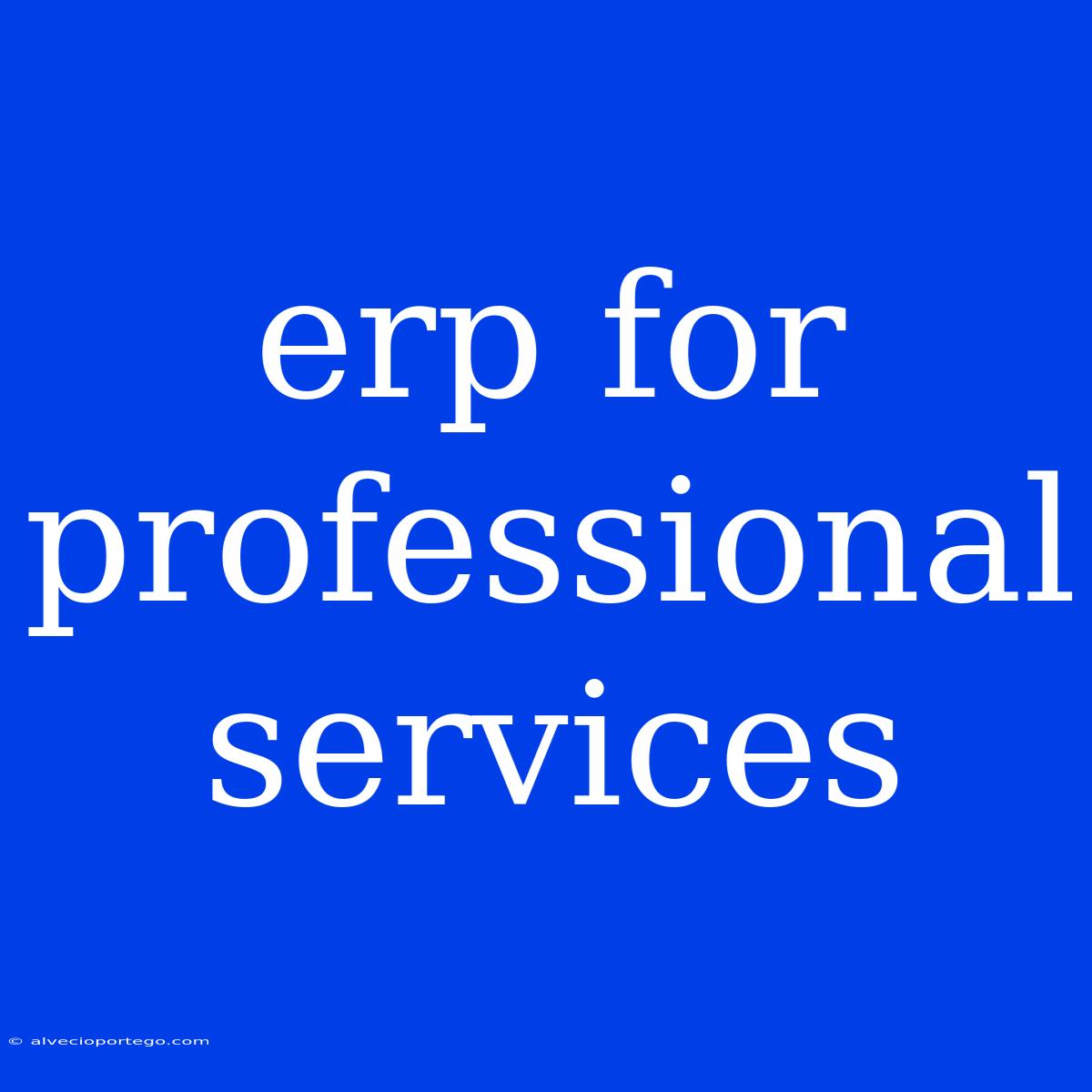ERP for Professional Services: Streamlining Operations and Boosting Growth
In today's competitive professional services landscape, businesses need a robust system to manage their operations efficiently and effectively. Enter Enterprise Resource Planning (ERP), a powerful tool specifically tailored for professional service organizations.
Why ERP for Professional Services?
ERP systems are designed to integrate all aspects of a business, from finance and human resources to project management and customer relationship management (CRM). For professional service firms, this translates to:
- Enhanced Project Management: Track project timelines, budgets, and resource allocation with ease, ensuring on-time delivery and maximizing profitability.
- Improved Collaboration: Facilitate seamless communication and collaboration among team members, clients, and stakeholders, leading to greater project success.
- Streamlined Resource Management: Optimize the allocation of human resources, ensuring the right people are working on the right projects at the right time.
- Enhanced Financial Control: Gain real-time insights into financial performance, manage expenses effectively, and improve invoicing and payment processes.
- Improved Customer Relationship Management: Cultivate deeper client relationships through personalized communication, efficient service delivery, and enhanced customer support.
Key Features of ERP for Professional Services
1. Project Management:
- Project planning and scheduling: Set milestones, deadlines, and tasks for each project, providing a clear roadmap for execution.
- Resource allocation: Assign specific resources, including personnel, equipment, and materials, to each project.
- Time tracking: Capture billable and non-billable hours accurately, ensuring accurate billing and resource utilization analysis.
- Cost control: Monitor project expenses against budget, identifying potential overruns and enabling proactive cost management.
2. Finance and Accounting:
- Automated invoicing and billing: Generate invoices quickly and efficiently, improving cash flow and reducing administrative burden.
- Expense management: Track and manage expenses related to projects and employees, ensuring transparency and compliance.
- Financial reporting: Generate comprehensive financial reports, providing real-time insights into profitability, project performance, and resource utilization.
3. Human Resources:
- Employee management: Manage employee information, performance reviews, and payroll efficiently.
- Skills management: Track employee skills and experience, enabling efficient resource allocation for projects.
- Talent acquisition: Streamline the recruitment and hiring process, attracting and retaining top talent.
4. Customer Relationship Management (CRM):
- Customer engagement: Manage customer interactions, track communication history, and personalize client experiences.
- Service delivery: Track project progress, provide real-time updates to clients, and ensure high-quality service delivery.
- Customer satisfaction: Collect feedback from clients, identify areas for improvement, and enhance customer loyalty.
Choosing the Right ERP for Your Business
Selecting the right ERP solution is crucial. Consider factors such as:
- Industry-specific functionalities: Choose an ERP solution that caters to the unique needs and challenges of the professional services industry.
- Scalability and flexibility: Ensure the chosen ERP can adapt to your business's growth and evolving needs.
- Integration capabilities: Look for a system that seamlessly integrates with existing software applications, minimizing data silos and streamlining processes.
- Cost-effectiveness: Evaluate the total cost of ownership, including implementation, training, and ongoing maintenance.
Conclusion
By implementing a comprehensive ERP system, professional service firms can gain a significant competitive advantage. With improved efficiency, enhanced collaboration, and deeper client relationships, businesses can streamline their operations, boost profitability, and achieve sustainable growth.

